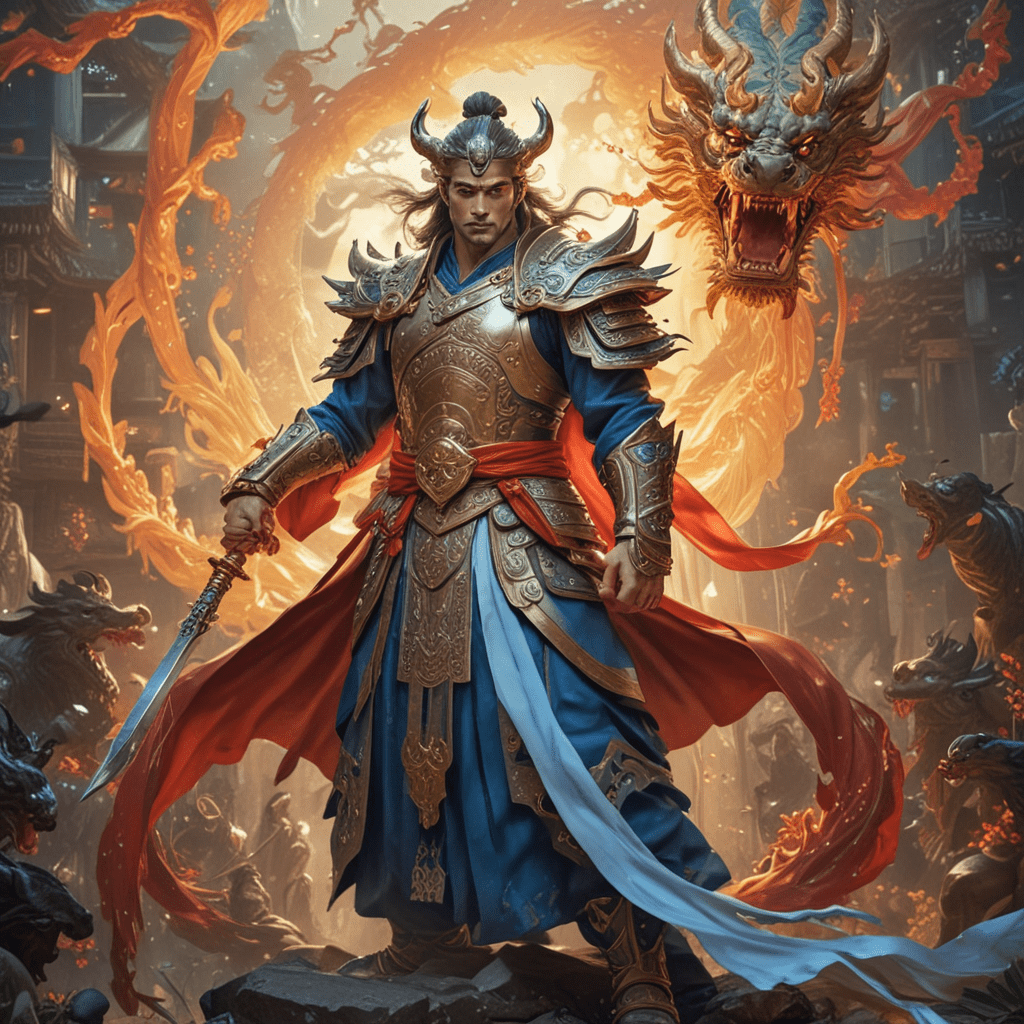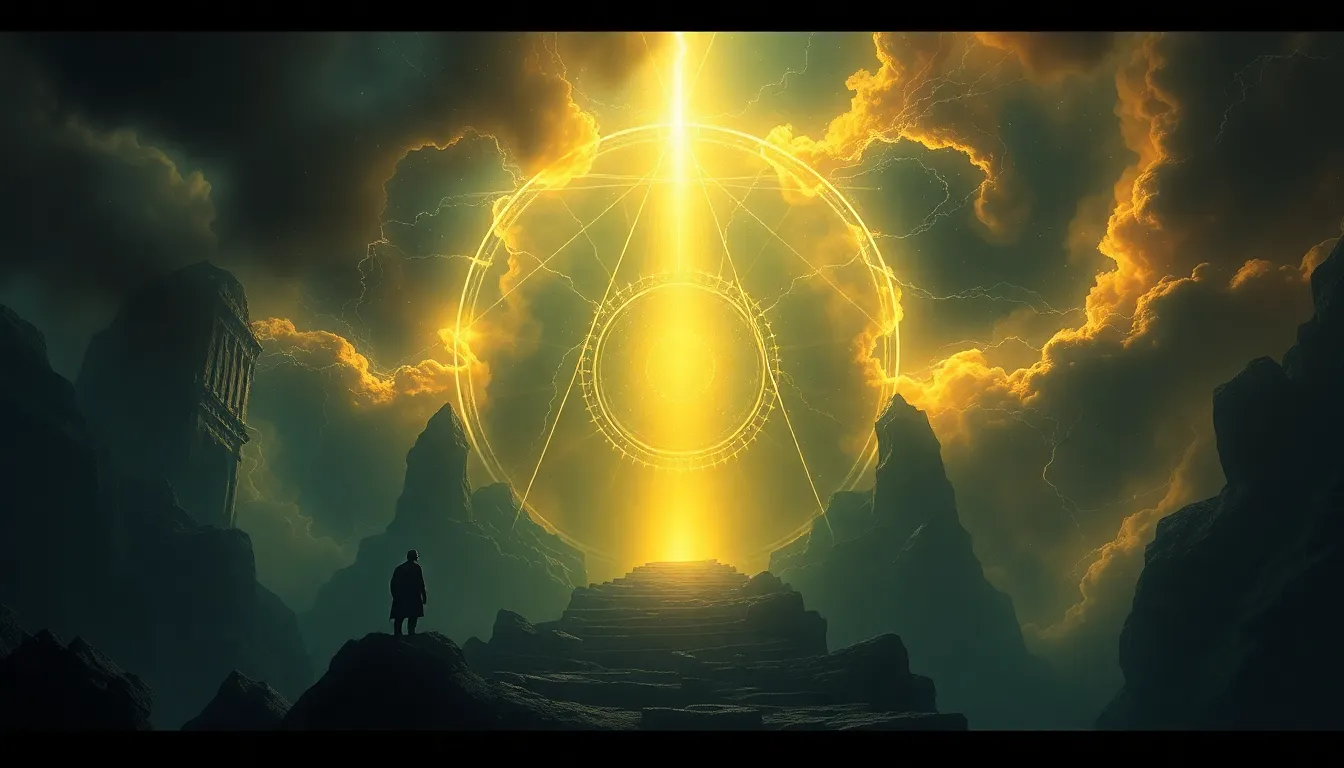The Mythical End: How Different Cultures View the Apocalypse
I. Introduction
The term “apocalypse” often evokes images of cataclysmic events and the end of the world as we know it. However, the definition of apocalypse extends beyond mere destruction; it signifies revelation and transformation. In many cultures, the apocalypse is not just an end, but a transition to a new beginning.
Studying cultural perspectives on the apocalypse is essential for understanding how societies cope with existential threats and how these beliefs shape their worldviews. This article will explore various cultural interpretations of the apocalypse, from ancient civilizations to contemporary society, and examine the implications of these beliefs.
The structure of this article will include historical contexts, Western and Eastern perspectives, indigenous beliefs, modern environmental concerns, psychological impacts, and future trends in apocalyptic thought.
II. Historical Context of Apocalyptic Beliefs
A. Origins of apocalyptic thought in ancient civilizations
Apocalyptic beliefs can be traced back to ancient civilizations such as the Sumerians, Egyptians, and Greeks, where myths often depicted gods engaging in battles that led to the destruction and rebirth of the world. These narratives served to explain natural disasters and societal upheavals.
B. Major historical events that shaped apocalyptic narratives
Significant historical events, including plagues, wars, and natural disasters, have influenced apocalyptic narratives. For example, the Black Death in the 14th century led many to see it as divine punishment and a precursor to the end times.
C. The role of religion and mythology in these beliefs
Religion and mythology have played crucial roles in shaping apocalyptic narratives. They provide frameworks for understanding chaos and offer hope for renewal and salvation. These narratives often emphasize moral and ethical lessons relevant to the societies from which they emerge.
III. Western Perspectives on the Apocalypse
A. Judeo-Christian views: The Book of Revelation
In Western culture, the Book of Revelation in the New Testament is the most significant source of apocalyptic imagery. It describes the final battle between good and evil, the return of Christ, and the establishment of a new heaven and earth.
B. Influence of the Enlightenment and modern science
The Enlightenment brought a shift in perspective, emphasizing reason over religious dogma. This led to a more secular understanding of the apocalypse, often framed in terms of scientific predictions, such as climate change and nuclear disasters.
C. Contemporary interpretations and popular culture representations
- Movies like “Mad Max” and “The Road” depict post-apocalyptic worlds, reflecting societal fears and anxieties.
- Television series such as “The Walking Dead” explore survival and community dynamics in apocalyptic scenarios.
IV. Eastern Perspectives on the Apocalypse
A. Hindu notions of cyclical time and cosmic destruction
In Hindu cosmology, time is viewed as cyclical, with the universe undergoing cycles of creation, preservation, and destruction known as Yugas. The current age, Kali Yuga, is believed to be a time of moral decline, but it will eventually give way to a new cycle of creation.
B. Buddhist views on impermanence and rebirth
Buddhism teaches that all things are impermanent and that this impermanence can lead to suffering. The concept of rebirth reflects a continuous cycle rather than a definitive end, highlighting the transient nature of existence.
C. Chinese myths of the end times and their philosophical implications
Chinese mythology includes various tales of apocalyptic events, such as the myth of the Great Flood. Philosophically, these narratives often emphasize harmony and balance, suggesting that the end of one cycle leads to the beginning of another, maintaining cosmic order.
V. Indigenous and Tribal Views on the End of Days
A. Native American prophecies and their connection to nature
Many Native American cultures have prophecies regarding the end of times, often connected to the land and nature. The Hopi prophecy speaks of a time when the world will be cleansed, and a new dawn will emerge, emphasizing harmony with nature.
B. African tribal beliefs and the significance of ancestral spirits
In various African cultures, ancestral spirits play a crucial role in shaping understandings of the apocalypse. Some believe in a time when the ancestors will return to guide the living, reflecting a belief in continuity rather than finality.
C. The role of oral traditions in preserving apocalyptic narratives
Oral traditions are vital in preserving apocalyptic narratives among indigenous peoples. These stories, passed down through generations, serve as warnings and lessons, emphasizing the importance of living in harmony with the earth.
VI. The Role of Environmentalism in Modern Apocalyptic Thought
A. Climate change and its implications for apocalyptic beliefs
In contemporary society, climate change has sparked new apocalyptic fears. Many view it as a harbinger of an impending apocalypse, leading to increased anxiety and calls for action.
B. The intersection of environmentalism and spirituality
Environmental movements often blend spiritual beliefs with ecological concerns, framing the fight against climate change as a moral imperative. This intersection creates a new narrative where saving the planet becomes a form of spiritual salvation.
C. Case studies of eco-apocalyptic narratives in various cultures
- The “Gaia hypothesis” suggests that the Earth itself is a living entity, promoting a view of environmental destruction as an existential threat.
- Indigenous movements often highlight the spiritual significance of nature, viewing environmental degradation as a violation of sacred trust.
VII. Psychological and Sociological Impacts of Apocalyptic Beliefs
A. Fear and anxiety surrounding the end of the world
Apocalyptic beliefs can lead to significant fear and anxiety within societies. The thought of an impending apocalypse can create existential dread, influencing mental health and societal behaviors.
B. Group dynamics and community responses to apocalyptic predictions
Communities often respond to apocalyptic predictions by forming groups centered around shared beliefs. These groups can provide support but may also lead to isolation from broader society.
C. The role of media in shaping public perceptions of the apocalypse
Media plays a crucial role in shaping how apocalyptic beliefs are perceived. Sensationalist coverage can amplify fears, while documentaries and literature can provide more nuanced perspectives on these beliefs.
VIII. The Future of Apocalyptic Narratives
A. How globalization is influencing cultural views on the apocalypse
Globalization facilitates the exchange of ideas, leading to a blending of apocalyptic narratives across cultures. This can create a more unified but complex understanding of the apocalypse.
B. The blending of traditional myths with modern fears
As traditional myths encounter modern fears, new narratives emerge that combine ancient wisdom with contemporary concerns, such as climate change and technological disasters.
C. Predictions for future apocalyptic beliefs and narratives
Future apocalyptic narratives may increasingly reflect global concerns, emphasizing interconnectedness and the importance of collective action in the face of existential threats.
IX. Conclusion
A. Summary of key insights from various cultures
Across cultures, apocalyptic beliefs serve as reflections of societal fears, hopes, and moral lessons. They provide frameworks for understanding chaos and the potential for renewal.
B. The significance of understanding diverse perspectives on the apocalypse
Understanding diverse perspectives on the apocalypse enriches our comprehension of human consciousness and societal dynamics, highlighting the importance of cultural narratives in shaping worldviews.
C. Final thoughts on the role of apocalyptic narratives in shaping human consciousness
As humanity faces unprecedented challenges, apocalyptic narratives will continue to play a significant role in shaping our responses to crises, urging us to reflect on our values, relationships, and responsibilities toward each other and the planet.
X. References and Further Reading
A. Suggested books and articles on apocalyptic studies
- “Apocalypse: A History of the End of Times” by John Michael Greer
- “The End of the World: The Science and Ethics of Apocalypse” by David A. Brading
- “The Book of Revelation: A New Translation and Commentary” by Craig Koester



